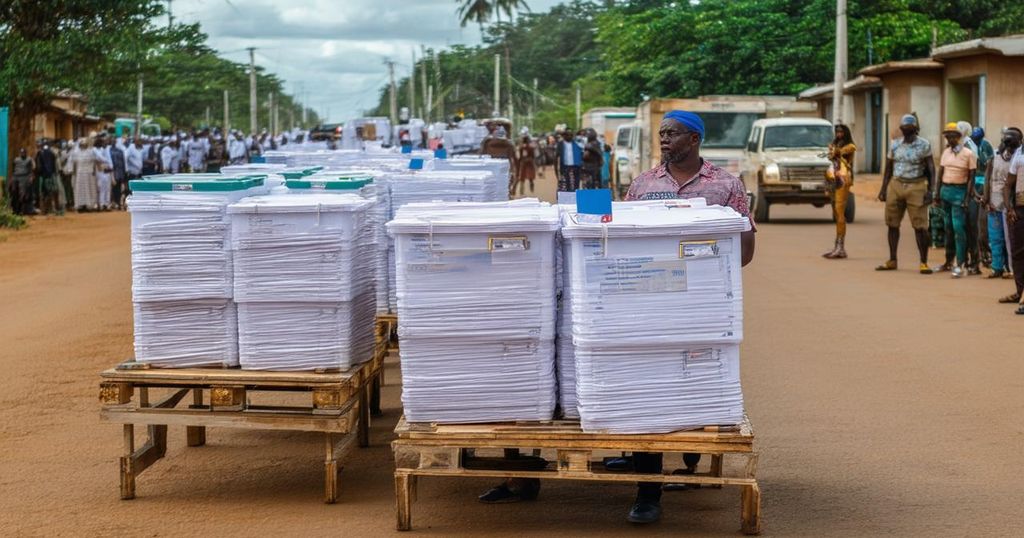Mozambique’s Frelimo Party Declares Election Victory Amid Fraud Allegations

The Frelimo party, led by Daniel Chapo, has been declared the winner of Mozambique’s presidential election with over 70 percent of the votes, despite opposition claims of electoral fraud. Venancio Mondlane, the main opposition candidate, alleges manipulation and has called for protests. Additional violence and dissenting observer reports have heightened tensions in the country.
The recent presidential election in Mozambique has resulted in the ruling Frelimo party’s candidate, Daniel Chapo, being declared the winner with over 70 percent of the votes, as reported by the National Election Commission (CNE). This announcement comes amidst serious allegations of electoral fraud and manipulation from opposition groups, particularly from independent candidate Venancio Mondlane, who claims he actually won the election despite being declared second with over 20 percent of the vote. The election marks a significant continuation of Frelimo’s enduring hold on power, a party that has been in control since the country gained independence from Portugal in 1975. Daniel Chapo is set to become Mozambique’s first president born after independence when he officially takes office in January. The political environment has been charged, especially in the wake of violence surrounding the election; two opposition officials were brutally murdered prior to the voting, stirring fears of repression and instability. Mondlane has called for a “great national demonstration” against Frelimo’s half-century in power, highlighting widespread discontent among the populace regarding alleged election irregularities. The European Union’s observer mission has also indicated significant concerns about the integrity of the electoral process, noting restrictions on their monitoring activities and instances of vote tampering at polling stations. Overall, the political landscape in Mozambique remains volatile, with security forces engaged in crackdowns on protests, further complicating the situation in a country already grappling with a history of civil unrest and allegations of electoral misconduct.
Mozambique, situated in southern Africa, has been ruled by the Frelimo party since gaining independence from Portugal in 1975. The country endured a destructive civil war with the opposition group Renamo, which eventually transformed into Frelimo’s primary rival. Following decades of governance, Frelimo stands accused of persistent electoral fraud, which the party has steadfastly denied. The aftermath of the October 9, 2023, election has revealed heightened tensions between the ruling party and its opposition, leading to protests and calls for change. The recent election results and subsequent violence underline the challenges facing Mozambique as it moves forward.
In summary, the declaration of Daniel Chapo as the winner of Mozambique’s presidential election has been met with significant backlash due to claims of electoral fraud and violence against opposition figures. While the ruling Frelimo party celebrates another term in power, the situation remains precarious as opposition leaders mobilize public sentiment against perceived electoral injustices. The international community, particularly EU observers, have raised critical concerns regarding the electoral process, indicating that Mozambique’s political future hangs in a delicate balance.
Original Source: www.aljazeera.com







